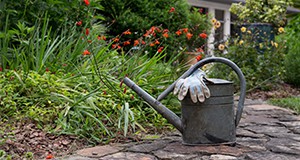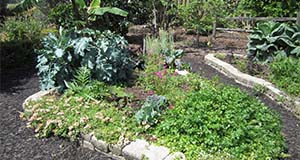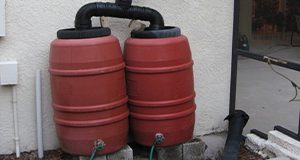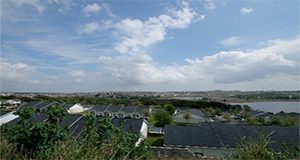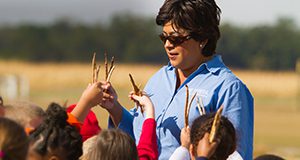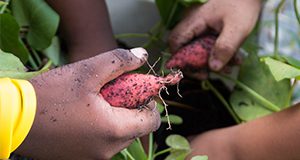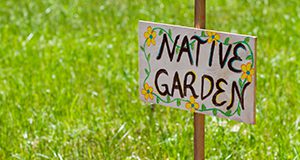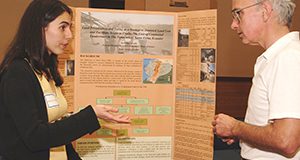Because a large percentage of water used in urban areas can be applied through irrigation, home landscape management practices are an important factor of water conservation. The information in this 5-page document is the result of a cluster analysis used to identify meaningful subgroups among home irrigation users to encourage water conservation behaviors. Written by Amanda D. Ali, Laura A. Sanagorski Warner, and Anil Kumar Chaudhary and published by the UF/IFAS Department of Agricultural Education and Communication, May 2018.
http://edis.ifas.ufl.edu/wc291
Tag: Department of Agricultural Education and Communication
Using Environmentally Themed Videos to Help Extension Promote Good Landscape Management Behaviors
Water quality and quantity are major issues in the state of Florida, and water resources can be affected by the way residents choose to fertilize and irrigate their lawns and landscapes. This 4-page document discusses the use of videos to promote good landscape management behaviors. Written by Laura A. Sanagorski Warner, Alexa J. Lamm, and Joy N. Rumble and published by the Department of Agricultural Education and Communication, May 2018.
http://edis.ifas.ufl.edu/wc302
Stakeholder-Identified Barriers, Challenges, and Obstacles in Community Gardens
Florida Extension agents play a vital role in assisting community members to start and sustain community gardens through site visits, workshops, and educational events. This 3-page document discusses the results of a Delphi study conducted in order to create a picture of the barriers, challenges, and obstacles to starting and sustaining community gardens in Florida. Written by Susan Webb and John Diaz and published by the UF/IFAS Department of Agricultural Education and Communication, March 2018.
http://edis.ifas.ufl.edu/wc301
Getting Engaged: Program and Event Planning for Clients with Diverse Abilities
For event planners, it is important to be inclusive of people with diverse physical and mental abilities when establishing accommodations for programs or events. This 3-page publication is one in the series Getting Engaged, and will aid Extension professionals and other program/event planners in appropriately accommodating audiences and attendees with various needs. Written by Kathryn Stofer and published by the UF/IFAS Department of Agricultural Education and Communication, March 2018.
http://edis.ifas.ufl.edu/wc299
Recruiting and Retaining Members in Agricultural Organizations
Many organizations struggle with recruiting new members and retaining current members. The UF/IFAS PIE Center conducted membership surveys of the Florida Cattlemen’s Association and Florida CattleWomen to aid both groups in their membership efforts. This 3-page document discusses common membership barriers and practices in order to help agricultural organizations be better equipped to attract new members and keep current ones. Written by Ricky Telg and published by the UF/IFAS Department of Agricultural Education and Communication, March 2018.
http://edis.ifas.ufl.edu/wc300
Instructional Design Using the Dick and Carey Systems Approach
Instructional design is a system of procedures used for developing instruction and training curricula in a consistent and reliable method. This 5-page publication applies the best practices of instructional design using the Dick and Carey systems approach. Written by Tyler D’Angelo, J. C. Bunch, and Andrew Thoron and published by the UF/IFAS Department of Agricultural Education and Communication, March 2018.
http://edis.ifas.ufl.edu/wc294
Rain Barrel Owners: Meeting the Programming Needs of This Unique Extension Audience
Rain barrels make it easy for households to practice water conservation. Extension programs for rain barrel construction, decoration, and giveaways can raise awareness for (and encourage use of) this technology. This 9-page document will provide insight into the behavior and attitudes of rain barrel owners so that Extension professionals may gain a better understanding of this unique audience. Written by Emily Ott, Paul Monaghan, Wendy Wilber, Lynn Barber, and Karissa Raymond and published by the UF/IFAS Department of Agricultural Education and Communication, March 2018.
http://edis.ifas.ufl.edu/wc297
Tailoring Recognition to Fit Your Employees' Needs
Employee recognition plays a key role in the success and continuity of productivity, efficiency, and organizational change. This 2-page document discusses employee recognition practices that you can implement in your workplace. Written by Matt Benge and published by the UF/IFAS Department of Agricultural Education and Communication, February 2018.
http://edis.ifas.ufl.edu/wc298
Stakeholder-Identified Community Garden Program Outcomes
Extension clientele often contact agents for expertise on starting or maintaining a community garden; however, agents’ ability to collect meaningful data from these activities can be a challenge. This 3-page publication discusses a statewide study that was conducted by the author to identify community garden outcomes. Written by Susan Webb and John Diaz and published by the UF/IFAS Department of Agricultural Education and Communication, January 2018.
http://edis.ifas.ufl.edu/wc295
How Do Floridians Perceive Their Role in Protecting Water Quality and Quantity Through Landscape Practices?
Florida is faced with challenges in protecting both water quality and quantity; the state’s incredible number of home landscapes can positively or negatively impact water depending on how landscapes are managed. In 2016, Florida residents with irrigated landscapes were surveyed in order to create more effective Extension programs regarding landscape best management practices. This 4-page document discusses the results of this survey. Written by Laura A. Sanagorski Warner, Alexa J. Lamm, and Anil Kumar Chaudhary and published by the UF/IFAS Department of Agricultural Education and Communication, January 2018.
http://edis.ifas.ufl.edu/wc293
Understanding Good Irrigation and Fertilization Behaviors Among Households Using Landscape Design Features
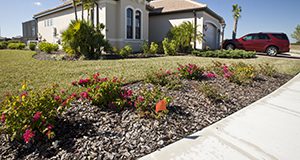
With increasing concerns over water resources in Florida, Extension can target households with irrigated landscapes to encourage practices that protect water quality and quantity. This document compares the water conservation education needs of different Florida household subgroups. Written by Anil Kumar Chaudhary and Laura A. Warner and published by the UF/IFAS Department of Agricultural Education and Communication, January 2018.
http://edis.ifas.ufl.edu/wc292
Florida's Agritourism Laws
Agritourism combines tourism and agriculture, Florida’s two largest industries, to provide interactive, engaging, and educational experiences for the public. This four-page document describes the laws governing Florida agritourism operations. Written by Mary Beth Henry and Kathryn Stofer and published by UF’s Department of Agricultural Education and Communication, September 2017.
http://edis.ifas.ufl.edu/wc285
Residents' Perceived Landscape Benefits Can Help Extension Promote Good Landscape Management Practices
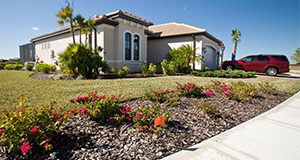
Households can help conserve and protect water resources through irrigation and fertilizer best practices without compromising the quality of their landscape. UF/IFAS Extension, along with Extension services across the country, conducts programs to protect water quality and quantity by educating communities and individuals about research-based landscape practices. This four-page fact sheet describes the results of a survey that can help Extension promote good landscape management practices. Written by Laura A. Warner, Amanda D. Ali, and Anil Kumar Chaudhary and published by the Department of Agricultural Education and Communication.
http://edis.ifas.ufl.edu/wc282
Important Resources for the Development and Sustainability of School Garden Programs
Extension agents serve as a valuable resource in providing teachers with in-service training and technical education to increase their ability to effectively use gardening as an instructional tool. This three-page document provides an outline of important resources to help in the development and sustainability of a school garden program. Written by John M. Diaz and Erin Elsberry and published by the Department of Agricultural Education and Communication.
http://edis.ifas.ufl.edu/wc283
Reframing Leadership
Effective leadership is essential in the businesses where we work, the institutions where we learn and in the communities where we live. Our own leadership is a product of how we see the world. This three-page article looks at Bolman and Deal’s book Reframing Organizations and the different frames to address organizational issues and leadership. Written by Matthew Sowcik, Hannah Carter, and Valerie McKee and published by the Department of Agricultural Education and Communication.
http://edis.ifas.ufl.edu/wc284
Enhancing the Success of Extension Programs with the Social Exchange Theory
Social Exchange Theory (SET) is based on the principle that human behavior is an exchange of rewards between people. This three-page fact sheet explains how it can be applied to Extension programming to promote clientele participation in programs and a commitment to changing their behaviors. Written by Amanda D. Ali and Laura A. Warner and published by the Department of Agricultural Education and Communication.
http://edis.ifas.ufl.edu/wc280
Getting Engaged: Resources to Support Community Engagement Practices
This document is part of a series called Getting Engaged (http://edis.ifas.ufl.edu/topic_series_getting_engaged), designed to help Extension and research faculty and other community engagement professionals improve their engagement with a variety of stakeholder audiences. This four-page document offers resources for practitioners at all stages, from those just beginning to think about engagement to those who have been engaging their communities for years. Written by Kathryn A. Stofer and published by the Department of Agricultural Education and Communication.
http://edis.ifas.ufl/edu/wc273
Developing County Associations for School and Community Gardens
Increasingly, gardeners receive attention for the educational, environmental, health, and social impacts that their projects facilitate within schools and communities. Garden associations allow Extension to play a vital role in providing technical information to support new and existing gardens. This three-page fact sheet outlines the framework used by a pilot garden association program in Polk County, Florida. Written by John M. Diaz, Susan Tyler Webb, and Erin Elsberry and published by the Department of Agriculture Education and Communication.
http://edis.ifas.ufl.edu/wc279
Getting Engaged: Improving Your Stakeholder Engagement Practices
This document is part of a series called Getting Engaged (http://edis.ifas.ufl.edu/topic_series_getting_engaged), designed to help Extension and research faculty and other community engagement professionals improve their engagement with a variety of stakeholder audiences. This four-page document provides basic information that will help faculty and other community professionals become more comfortable with engaging various stakeholder audiences. Written by Kathryn A. Stofer and published by the Department of Agricultural Education and Communication.
http://edis.ifas.ufl.edu/wc274
Water Conservation and Extension Participants: An Interesting Synergy
The home landscape is a place where there is a great opportunity for people to adopt irrigation practices and technologies that conserve water. However, a large portion of residents lack the required knowledge and skills to adopt some of those practices. This three-page fact sheet discusses using innovative evaluation approaches to demonstrate the impacts of statewide urban water conservation programs. Written by Laura A. Warner, Sebastian Galindo-Gonzalez, and Anil Kumar Chaudhary and published by the Department of Agricultural Education and Communication.
http://edis.ifas.ufl.edu/wc278
